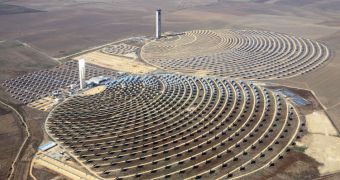Earlier this year, at the Oxford Round Table on The Copenhagen Protocol: Problems and Possibilities conference, scientists from around the world discussed issues facing our species and the planet today. They listed ecosystem degradation, biodiversity decline, and resource depletion as among the gravest problems our society has ever had to deal with. But the group also managed to come up with a few solutions to this crisis, all of which rely on making us and the Earth grow in a sustainable manner. The experts also underlined the importance of bridging the divide between governments and scientists.
While the latter category only does things based on solid evidence, the former needs to bow down to various diplomatic and public pressure, which don't always see the big picture, or understand what they're talking about. Governments, for example, are very well aware that global warming and climate change are taking place, and at what pace. Be assured that the same holds true for countries that say these phenomena don't occur at all. However, they don't take action on this knowledge for other reasons, including pressures from lobby groups, religious groups, the general population, big business, other states and so on. This gap needs to be closed off if we are to have any chance of enduring.
“This opportunity [the Round Table] to meet and learn from colleagues from diverse fields and cultural perspectives always triggers new ideas, generates new questions and creates the possibility for future collaborations among cross disciplines,” explains University of Miami College of Engineering professor Dr James D. Englehardt, who participated at the meeting. The event took place March 22-26 in Oxford, the UK, at the University of Oxford Lincoln College. Participants approached the issues facing the world from multiple perspectives, including biology, chemistry, physics, ecology, education, law, engineering, social sciences, public health, geology, architecture, forests, and the economy. Eight countries sent their representatives to the gathering.
One of the main recommendations the group made was for government authorities to start reshaping and redefining the goals and methods of economic growth. At this point, market imperfections, social inequities, the average quality of life and the sustainability of resources are taking their tolls on the economy, and more and more people are placed at risk, or sacrificed, in order to keep the new system going.
“The earth processes are changing in numerous ways; many of these are detrimental to humanity and other species. Worldwide, human society has accelerated the use of natural resources, bringing about massive changes in the productive base of land, air and water resources. A consequence of this has been reduced biological diversity because of habitat loss, land use change and the spread of invasive species. Degradation of ecosystems has been accentuated by introduction into the environment of massive quantities of inorganic and organic materials that degrade the integrity of ecosystems. The climate change will exacerbate the degradation of ecosystems that are necessary to support a still-expanding human population,” the scientists wrote in a document.

 14 DAY TRIAL //
14 DAY TRIAL //